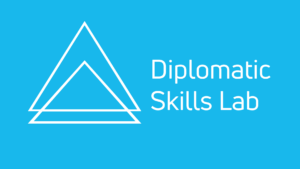Drafting Skills
Objectives
This course sets out to help participants improve and enhance the effectiveness of their written English in their professional work. It helps them to recognise the characteristics, strengths and weaknesses of their own writing style. It offers techniques for more effective drafting in a range of official formats and styles appropriate to different situations (including, for example, how to say “no” diplomatically). It shows participants the advantages of (i) having clearly identified at the outset the purpose of their communication as well as their key messages; (ii) knowing their audience and putting themselves in the shoes of their readers as they draft; and (iii) in the style of The Economist and other successful media outlets reporting on international affairs (iii) making their drafts clear and easy to read.
We provide three related modules: EffectiveWriting, Political Reporting and Effective Briefing. Effective Writing covers a range of settings from routine emails to diplomatic Notes Verbales. We direct participants to models of good writing and encourage them to look critically at drafts by colleagues so as to see what works and what doesn’t. The second module covers Political Reporting, offering tips and advice on how to draft a well-structured reports that contributes to policy-making. These may be reports of meetings at which policy is discussed and follow up action agreed, bilateral meetings with stakeholders, meetings of a multilateral working groups or councils, or meetings of a parliamentary committees. We show participants how to avoid a blow-by-blow account of proceedings in favour of a summary which captures support for or against particular viewpoints as well as next steps. We alert participants to the needs of the busy reader, indicating what’s likely to cause him/her to ask for more. The third module on Effective Briefing develops participants’ ability to draft well-structured briefs ahead of meetings with stakeholders, offering them advice on what a brief should and should not contain while enhancing their capacity to think coherently while providing political advice. See also training in Communication skills for the training we offer on speech writing.
Learning outcomes
Participants should be able to produce more focused material, better suited to the intended reader, and more likely to achieve the desired result. They should also acquire the critical skills necessary to edit, polish and improve the impact of their own drafts as well as that of others. They will appreciate the gap between what is written and what the reader takes in. They will also have the capacity to exploit a range of techniques and devices to influence busy decision-makers in the international arena so as to achieve favourable outcomes.
Methodology At the end of the second and third modules, participants will be asked to draft their own report and/or brief on a topic of their own choosing, taking account of the knowledge acquired during the training. The trainers will provide personalised feedback to each participant along with advice for improvement
Drafting skills can be delivered face-to-face in two days or online over three half days (see FAQs). PowerPoint presentations will animate workshop-style discussion. Practical exercises undertaken both individually and in groups and using online tools such as Slido, Paddlet and Miro will identify personal styles and get participants accustomed to judging the effectiveness of their own and others’ drafts. Handouts of Top Tips will reinforce the learning. This training is not just for diplomats but for anyone engaged in drafting for senior staff in their organisation and external stakeholders. No prior knowledge is required.
Our experience
Keeping academic theory to a minimum, our trainers bring the practical experience of senior diplomats representing their governments in the EU and in a multitude of bilateral contexts. They are also experienced trainers, with the ability to illustrate the techniques they share with personal examples from their own professional lives. Uniquely, they are well versed in offering candid and constructive feedback to individual course participants in a way that encourages personal development. These courses have been delivered to participants in the European Commission, the European External Action Service, the General Secretariat of the Council of the EU, to officials from government ministries in Switzerland, Lithuania, Estonia, the United Kingdom, Georgia, Armenia and Ukraine, as well as to officials in the Brussels offices of the Catalonian region.


